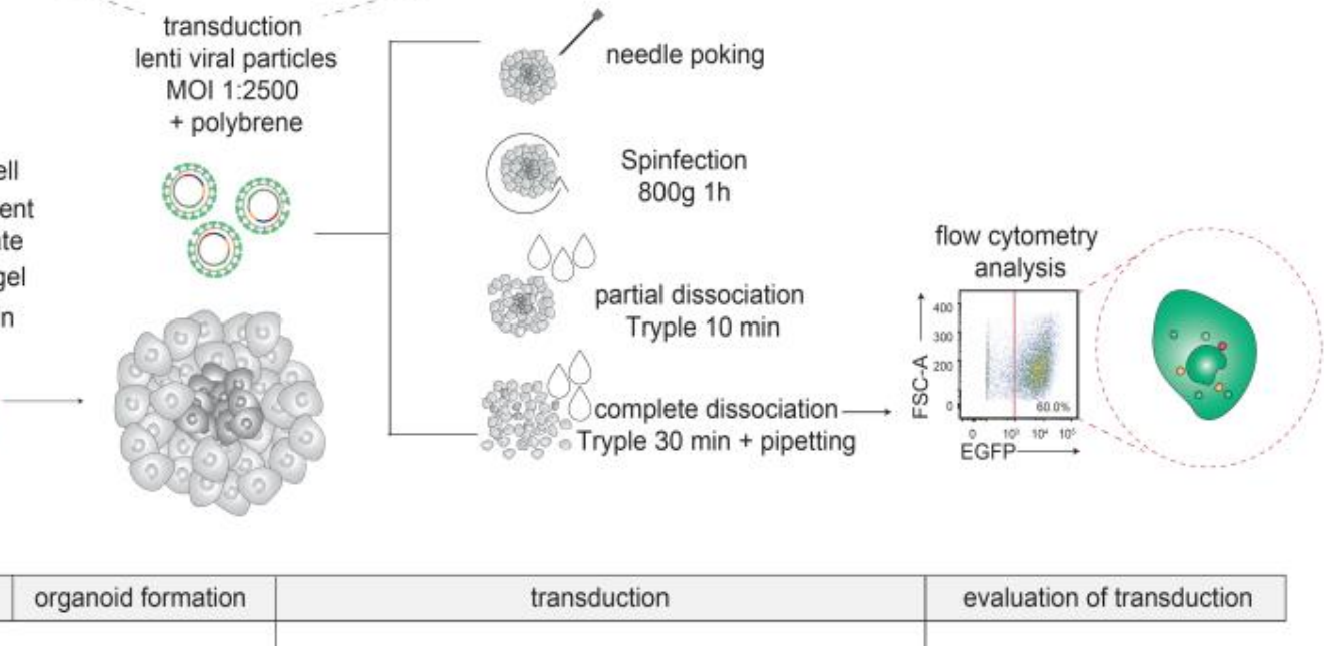Publications
Evaluating Dendritic Cell Reprogramming in Patient-Derived Cancer Organoids

June 13, 2022
MSc. Thesis - Lund University
Malavika Sreekumar Nair
Resources:
Abstract
Immunotherapy utilizes the patient’s own immune system for the treatment of cancer. Due to exceptional antigen-presentation capacity Dendritic Cells (DCs) have great potential for cancer immunotherapy. Using direct cellular reprogramming our group has identified a combination of transcription factors, PU.1, IRF8, and BATF3 that reprograms mouse and human fibroblasts and a range of cancer cell lines into antigen-presenting cells resembling type 1 conventional DCs (cDC1) in terms of morphology, transcriptional, epigenetic profiles, and functional features. To support clinical translation of this approach based on induced antigen presentation of cancer antigens, we addressed cDC1 reprogramming in primary cancer tissues obtained from patients with head and neck, urothelial, lung carcinoma, and melanoma. we showed that all primary samples tested were permissive to cDC1 reprogramming with varying efficiencies according to the cancer cell type of origin. Phenotypic analysis demonstrated that reprogrammed primary cancer cells upregulated expression CD45 and HLA-DR which represent well the reprogramming trajectory. Furthermore, reprogrammed cells expressed cDC1-specific marker CD226 as well as co-stimulatory molecules CD40 and CD80, suggesting that reprogrammed primary cells became competent for antigen presentation. In addition, reprogrammed tumor cells secreted pro- inflammatory cytokines- TNF-α and IL-12p70 which may further enhance anti-tumor immunity.
To model cDC1 reprogramming within the tumor microenvironment (TME), we generated cancer derived organoids in the presence or absence of fibroblasts. We showed that reprogramming was feasible in organoid 3D models, despite an overall decrease in transduction efficiency, that could be improved by combining transduction protocols with dissociation methods. Interestingly, the efficiency of cDC1 reprogramming was not hampered in cancer organoids generated with fibroblasts, suggesting that the immunosuppressive TME does not negatively impact the reprogramming process. This study brings valuable information for clinical translation of cDC1 cancer cell reprogramming and contributes to the development of novel immunotherapies based on direct reprogramming.